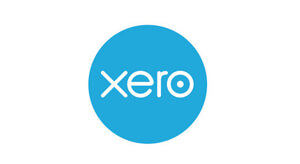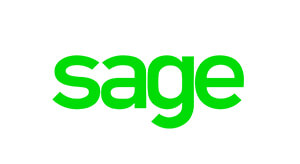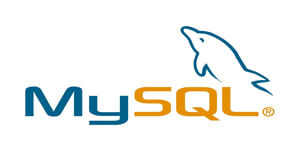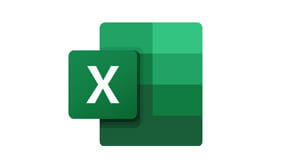When you’re running a business, whether it’s a small startup or a growing enterprise, your finances are the backbone of your operations. But many business owners in the UK find themselves asking: What is bookkeeping? And how is bookkeeping different from accounting?
At Momentum Bookkeeping, a provider of trusted bookkeeping services in Glasgow, we often guide business owners through this very confusion. The short answer is: bookkeeping and accounting are not the same, though they complement each other. Together, they ensure your business stays financially healthy, compliant, and scalable.
Let’s break it down clearly and show you why both functions matter.

What is Bookkeeping?
Bookkeeping is the systematic recording of a business’s financial transactions on a day-to-day basis. It includes everything from tracking sales and purchases to recording payments, receipts, payroll, and expenses.
Think of it as the first step in the financial reporting process. Without a solid bookkeeping foundation, your accountant wouldn’t have accurate data to work with.
In modern times, bookkeeping in Glasgow or anywhere else often means using cloud software like Xero, QuickBooks, or FreeAgent to record every transaction securely and in real time.
Why is Bookkeeping Important?
Bookkeeping might seem basic, but it has a huge impact on your business’s health. Here’s why:
- It helps you stay compliant: HMRC requires accurate and complete records.
- Improves cash flow visibility: Know what you owe and who owes you.
- Prevents financial mistakes: Identifies errors or duplicates early.
- Supports funding applications: Clean books can boost your credibility with banks or investors.
- Saves time at tax year-end: No more scrambling for receipts or trying to remember expenses.
For many small businesses, hiring a bookkeeper in Glasgow is one of the smartest decisions they can make to ensure smooth operations.
What Exactly Does a Bookkeeper Do?
A bookkeeper wears many hats depending on your business. Their main responsibilities include:
- Recording sales and purchase transactions
- Managing invoices and receipts
- Reconciling bank and credit card statements
- Monitoring accounts payable and receivable
- Handling payroll and pension contributions
- Preparing VAT returns and submitting them on time
- Keeping your records MTD (Making Tax Digital) compliant
They are the first line of defence against financial mismanagement. Good bookkeepers also work closely with accountants to prepare the data they need.
At Momentum Bookkeeping, our local bookkeeping service tailors support to your business goals, making sure you’re always HMRC-ready.
Popular Tools for Bookkeeping
Digital bookkeeping has transformed the way we manage financial records. Here are the most popular tools used in bookkeeping businesses today:
- Xero: Cloud-based, easy-to-use, perfect for small businesses and integrates with hundreds of apps.
- QuickBooks: Widely adopted in the UK, great for VAT, inventory, and payroll.
- FreeAgent: Designed for freelancers, contractors, and micro-businesses.
- Sage Business Cloud: Ideal for larger or growing companies needing custom features.
These tools reduce manual errors, offer real-time insights, and streamline collaboration between business owners and their bookkeepers or accountants.

What is Accounting?
Accounting is the process of analysing, interpreting, and summarising financial data gathered by the bookkeeper. It’s a more strategic, big-picture role, designed to help with planning, tax strategy, compliance, and forecasting.
In short, if bookkeeping is about recording the financial story of your business, accounting is about understanding and interpreting that story to make decisions.
What Do Accountants Handle?
An accountant’s role includes:
- Preparing year-end financial statements
- Calculating and filing business and personal tax returns
- Advising on allowable expenses and tax deductions
- Conducting financial analysis and audits
- Providing strategic planning and investment advice
- Advising on business structure (e.g., sole trader, limited company)
You might not need an accountant daily, but during critical moments, year-end, expansion, or business sale, their expertise is vital.
Why Do You Need an Accountant?
Here’s when an accountant becomes invaluable:
- Tax season: Filing accurate and optimised tax returns
- Growth phase: Scaling your business with a solid financial plan
- Regulatory changes: Staying compliant with updated tax laws or industry regulations
- Selling or restructuring: Valuation, due diligence, and transition planning
Many bookkeeping services like ours at Momentum Bookkeeping also partner with experienced accountants to ensure seamless end-to-end support.

What is the Key Difference Between Bookkeeping and Accounting?
Understanding the distinction between bookkeeping and accounting is crucial for every business owner. While the two terms are often used interchangeably, they serve different, yet equally important, functions in a company’s financial ecosystem.
Let’s dive into the core differences, broken down into purpose, process, output, and the skills required for each role.
Purpose: Recording vs Analysing
The primary purpose of bookkeeping is to accurately record all financial transactions. Bookkeepers maintain a detailed, chronological record of daily business activities such as sales, purchases, payments, and receipts.
By contrast, the purpose of accounting is to interpret, analyse, and report on the financial data provided by the bookkeeper. Accountants use these records to assess financial health, identify trends, forecast growth, and ensure compliance with legal and tax obligations.
- Bookkeeping = Recording transactions
- Accounting = Understanding and applying financial data
Process: Data Entry vs Strategic Oversight
Bookkeepers perform routine financial tasks regularly. This includes entering data into bookkeeping software like Xero, QuickBooks, or FreeAgent, categorising expenses, reconciling bank accounts, and preparing VAT returns. These tasks are detailed and administrative.
Accountants, on the other hand, take a broader view. They review the records provided by the bookkeeper and use that information to prepare financial statements, advise on tax-saving opportunities, assess cash flow, and help business owners make informed decisions. This makes accounting a more strategic, interpretive, and advisory role.
Output: Reports vs Insights
The output of bookkeeping is a well-organised, accurate set of financial records. This includes cash books, ledgers, expense reports, bank reconciliations, and VAT submissions.
The output of accounting includes profit and loss statements, balance sheets, cash flow projections, business performance reports, and tax filings. These reports are used not just for compliance, but for strategic financial planning.
In simple terms:
Bookkeepers provide the “what happened”
Accountants provide the “what it means” and “what to do next”
Skills & Qualifications: Practical vs Analytical
Most bookkeepers are trained in financial administration and the use of digital bookkeeping platforms. They are detail-oriented, process-driven, and familiar with HMRC compliance requirements, especially Making Tax Digital (MTD).
Accountants usually hold formal qualifications (such as ACCA or CIMA) and have in-depth knowledge of UK tax law, financial regulations, and business planning. Their role is analytical and advisory, often requiring problem-solving and strategic thinking.
Frequency of Interaction: Day-to-Day vs Periodic
Bookkeepers work closely with business owners on a weekly or daily basis, ensuring records are kept up-to-date in real time.
Accountants are usually involved monthly, quarterly, or annually, particularly around tax season, business planning reviews, or year-end accounts preparation.
Bookkeeping Feeds Accounting
A vital point to remember is that accounting depends on bookkeeping. Without well-kept books, accountants cannot produce reliable reports or strategic advice. The two functions work hand-in-hand, and when integrated properly, they give a complete picture of a business’s financial performance.
This is why many businesses work with both a bookkeeper and an accountant, or with providers that offer both under one roof.
At Momentum Bookkeeping, for example, we specialise in small business bookkeeping in Glasgow and often collaborate with accountants to ensure seamless financial management. Our bookkeeping services in Glasgow are designed to support your accountant’s work, making tax season and strategic planning far less stressful.
Summary: Bookkeeping vs Accounting in Simple Terms
Let’s bring it all together:
- Bookkeeping is transactional. It’s about keeping your financial records neat, accurate, and up-to-date.
- Accounting is analytical. It’s about reviewing those records to support better financial decisions.
- Bookkeepers handle the “what.”
- Accountants focus on the “why” and “what’s next.”
By understanding the key difference between bookkeeping and accounting, you’ll be in a better position to build a financially sound, well-organised, and scalable business.

The Roles: Bookkeeper vs Accountant
While the terms bookkeeper and accountant are often used interchangeably, the roles they play in a business are quite distinct. Both are essential, and when they work together, they create a strong financial foundation for any business.
Tasks and Responsibilities
A bookkeeper is primarily responsible for managing the daily financial tasks of a business. This includes entering transactions, handling payroll, processing receipts, reconciling bank statements, and preparing VAT returns. These tasks ensure your financial data is always up to date and accurate, a must for small businesses that rely on real-time information to make day-to-day decisions.
An accountant, however, steps in to handle higher-level financial functions. This includes preparing financial statements, managing tax filings, offering strategic advice, and helping with year-end accounts. Accountants analyse the data provided by bookkeepers to provide business owners with deeper financial insights and long-term planning support.
Focus: Daily Operations vs Strategic Planning
Bookkeepers focus on the present, the daily ins and outs of financial activity. Their work helps keep things organised and compliant, especially for small businesses relying on local bookkeeping services.
Accountants focus on the future, identifying trends, advising on growth strategies, and ensuring your business remains tax-efficient. Their expertise becomes crucial during financial reviews, audits, or when planning for expansion.
Software and Tools Used
A bookkeeper typically uses software such as Xero, QuickBooks, or FreeAgent, all user-friendly platforms ideal for small business bookkeeping. These tools streamline tasks like invoicing, bank feeds, and VAT submissions, and are commonly used by those offering bookkeeping services in Glasgow.
An accountant is more likely to work with complex tools like Sage, Excel, or TaxCalc, especially for tax computations and advanced financial modelling. These platforms are designed for in-depth reporting and are often used for corporate accounting and compliance work.
Frequency of Interaction
A bookkeeper generally works with businesses on an ongoing and regular basis, sometimes daily or weekly. They’re part of your business’s financial rhythm, ensuring things run smoothly from month to month.
An accountant, on the other hand, tends to step in monthly, quarterly, or annually, depending on reporting needs, tax deadlines, or strategic planning sessions. They’re more involved during critical financial periods, such as year-end.
Output: Admin Records vs Financial Strategy
The output of a bookkeeper includes bank reconciliations, VAT returns, and real-time transaction data. These are essential for staying compliant and avoiding costly errors.
The output of an accountant includes financial reports, tax filings, and business insights. Their reports offer a full picture of financial health, helping you make informed business decisions.
Why Both Bookkeeping and Accounting Matter?
Relying on just one function could leave gaps in your financial picture.
- A bookkeeper without an accountant? You may lack long-term strategy or miss tax savings.
- An accountant without a bookkeeper? Your data may be disorganised or outdated.
For small business bookkeeping, investing in both functions is not a luxury; it’s a smart financial strategy that saves money, reduces risk, and fosters growth.
At Momentum Bookkeeping, we bridge the gap by offering integrated bookkeeping Glasgow cost solutions and working directly with your accountant.

What are the Differences Between Bookkeeping and Accounting Software?
Though often used together, bookkeeping software and accounting software are designed for different purposes, users, and outcomes. Understanding these differences helps small businesses choose the right tools for their financial management needs.
Purpose: Recording vs Analysing
Bookkeeping software focuses on the day-to-day recording of financial transactions. It helps keep your books organised by tracking income, expenses, receipts, and payroll. These platforms are built to simplify admin tasks like issuing invoices, reconciling bank accounts, and submitting VAT returns.
Accounting software, on the other hand, is designed to analyse and interpret financial data. It’s used to generate detailed reports such as profit and loss statements, financial forecasts, tax filings, and end-of-year accounts. These insights support better business decisions and long-term financial planning.
Users: Who Uses What?
Bookkeeping software is typically used by bookkeepers, admin staff, or small business owners who manage their finances. Its user-friendly interface and task-focused design make it ideal for managing daily financial activity without needing formal accounting training.
Accounting software is primarily used by accountants, finance managers, or company directors. These users require access to more advanced financial tools that support compliance, forecasting, and tax planning.
Examples of Bookkeeping and Accounting Tools
Popular bookkeeping software options include:
- Xero
- QuickBooks
- FreeAgent
These tools are cloud-based, cost-effective, and perfect for small business bookkeeping or anyone using a local bookkeeping service like Momentum Bookkeeping.
In contrast, commonly used accounting software includes:
- Sage Accounts
- IRIS
- TaxCalc
These platforms offer deeper functionality for reporting, analysis, and compliance, ideal for accountants and larger businesses.
Reporting: Simple Entries vs Strategic Insights
Bookkeeping software is ideal for producing reports such as:
- Invoices and bills
- Bank reconciliations
- VAT returns
- Accounting software goes further, generating:
- Profit and loss statements
- Balance sheets
- Tax forecasts
- Budgeting and cash flow projections
These reports are essential for understanding the full financial health of a business and planning ahead.
Can Software Do Both?
Yes, some modern platforms now integrate bookkeeping and accounting functions, offering a one-stop solution for small businesses. However, many still choose specialised software depending on the complexity of their operations.
For example, a startup may only need bookkeeping in Glasgow, using tools like Xero to track transactions. As the business grows, an accountant may begin using Sage or IRIS to manage more complex accounting and tax strategies.
When Do You Need a Bookkeeper vs. an Accountant?
Choose a bookkeeper when:
- You’re too busy for daily financial admin
- You’re not confident with VAT or payroll
- You’re switching to cloud software and need help
- You want peace of mind knowing your records are accurate
Choose an accountant when:
- You need help with business tax or self-assessment
- You want to restructure your company
- You’re growing and need long-term financial advice
- You want to reduce your tax burden legally

Final Thoughts: Bookkeeping and Accounting Work Best Together
In conclusion, bookkeeping and accounting serve different but interconnected purposes. Bookkeeping captures the financial story. Accounting helps you read and interpret it.
At Momentum Bookkeeping, we specialise in bookkeeping in Glasgow for small businesses, startups, and growing companies. We work alongside your accountant or recommend trusted professionals to ensure full financial clarity.
Need bookkeeping or wondering if now’s the time to hire a bookkeeper or accountant? Let’s talk. We offer flexible, affordable bookkeeping Glasgow cost packages tailored to your business size and needs.
Get in touch with Momentum Bookkeeping for expert, local bookkeeping services that help your business grow.

Momentum Bookkeeping Ltd
Mentieth House, 29 Park Circus, Glasgow, G3 6AP
Call. 0141 375 1240
Email. info@mvbooks.co.uk




